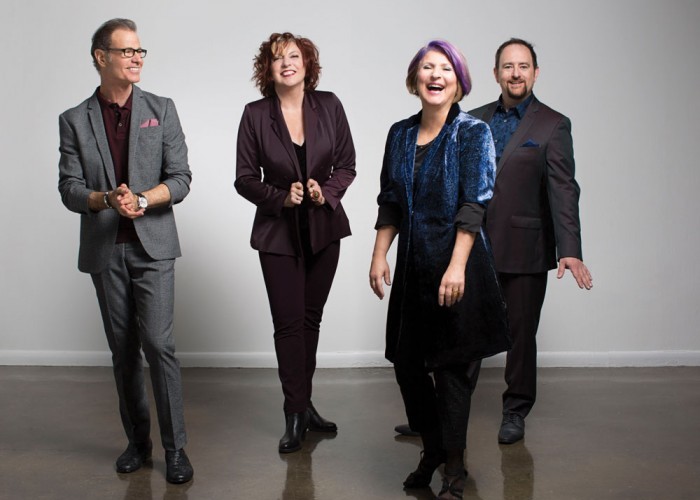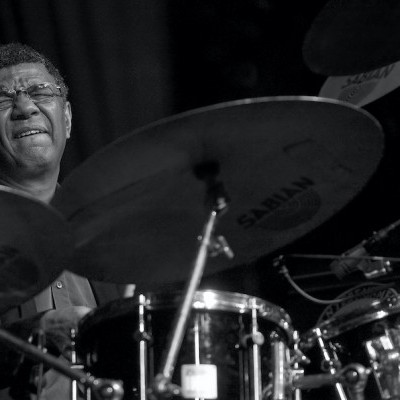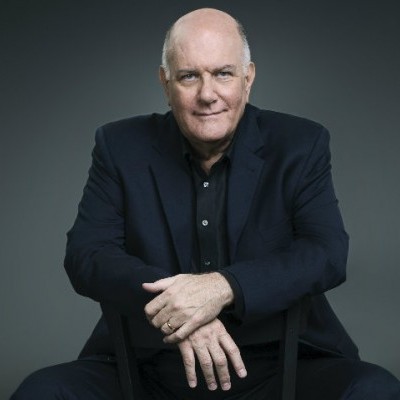Oct 28, 2025 10:47 AM
In Memoriam: Jack DeJohnette, 1942–2025
Jack DeJohnette, a bold and resourceful drummer and NEA Jazz Master who forged a unique vocabulary on the kit over his…

Manhattan Transfer, from left: Alan Paul, Cheryl Bentyne, Janis Siegel and Trist Curless
(Photo: John Abbott)Acclaimed vocal jazz group Manhattan Transfer is enjoying a new phase in its lengthy career. The band recently released it first new album in nearly a decade.
One of the most successful and versatile vocal groups in history, Manhattan Transfer was the first act ever to win Grammy awards in the pop and jazz categories in the same year (1981). Its 1985 all-jazz album, Vocalese, also made Grammy history by receiving a record 12 nominations (it won two). The group frequently explores multiple genres, moving easily between pop, jazz, gospel, funk and doo-wop.
Most of those elements are present on its new, pop-leaning album The Junction (BMG). The vocal quartet benefits from an inspired collaboration with Mervyn Warren (one of the founders of a cappella powerhouse Take 6), who produced and arranged the vocals.
The Junction is the group’s first recording since losing founder/bass singer Tim Hauser to a heart attack in 2014 at age 72. The new Manhattan Transfer consists of original members Alan Paul (tenor) and Janis Siegel (alto), who have been with the band since its founding in 1972; longtime member Cheryl Bentyne (soprano, since 1979); and a new member, bass/baritone Trist Curless, who is a veteran of a cappella group M-Pact. Curless had once subbed for Hauser for six months (prior to Hauser’s return to the group), so he was a natural choice to fill the bass spot.
Jazz fans will find plenty to love, including “Cantaloop (Flip Out!),” which is based on Herbie Hancock’s 1964 jazz standard “Cantaloupe Island” and Us3’s 1993 hip-hop hit “Cantaloop,” which sampled Hancock’s recording. Manhattan Transfer’s version includes an uncanny lead vocal by Bentyne, channeling Freddie Hubbard’s original trumpet solo.
There’s also a highly danceable, fully tricked-out version of the 1950s-era classic “Tequila,” combined with Paul’s original composition “The Way Of The Booze;” and Grace Kelly’s “Blues For Harry Bosch,” with Kelly’s sultry alto sax and new lyrics by Bentyne that lovingly send up film noir.
The five originals include the retro swing of Paul’s “Swing Balboa;” the delirious funk of Siegel’s “Shake Ya Boogie;” and “Sometimes I Do,” a soulful ballad by Warren, whose production features infectious synthesized funk beats, lush strings, and, of course, the quartet’s unique blend and luscious harmonies.
“We wanted to do a pop album, not just a jazz album,” Paul told DownBeat during a conference call with Curless from Los Angeles, “something that had wider boundaries and expressed different sides of Manhattan Transfer. There was a time when we were a Top 40 pop group. We wanted to express that on this album. Each song is like a chapter, representing some element of what we’ve done before.”
The group was eager to explore the new musical possibilities generated by the addition of new member Curless. Paul made it clear that, in a sense, there was no replacing Hauser. “Losing Tim was very difficult; it was a very big gap to fill … his personality and what he contributed to the group. We had to find someone who could sing the bass parts, but, more than that, create something new and fresh—a new element. That’s what we found with Trist. He has an amazing passion for music and for harmony.”
Curless, 46, reflected on what it means to become a member of the legendary outfit: “It’s pretty overwhelming and surreal to be part of a group that I grew up listening to and that was so influential on my musical development.”
Paul sees three distinct chapters of the group’s story: “From 1972 to 1979, with [original member] Laurel Masse, we were pretty much into nostalgia, with tails and tuxedos. We were eclectic but doing a lot of retro music. When Laurel left the group and we found Cheryl, in a way it was like where we are now. With the album Extensions [1979], we felt like, ‘Let’s just be free, break down the barriers and do whatever we’re feeling.’
“We were reborn twice; once when Cheryl joined the group. And now, with Trist, we’re reborn again.” DB

Jack DeJohnette boasted a musical resume that was as long as it was fearsome.
Oct 28, 2025 10:47 AM
Jack DeJohnette, a bold and resourceful drummer and NEA Jazz Master who forged a unique vocabulary on the kit over his…

Always a sharp dresser, Farnsworth wears a pocket square given to him by trumpeter Art Farmer. “You need to look good if you want to hang around me,” Farmer told him.
Sep 23, 2025 11:12 AM
When he was 12 years old, the hard-swinging veteran drummer Joe Farnsworth had a fateful encounter with his idol Max…

D’Angelo achieved commercial and critical success experimenting with a fusion of jazz, funk, soul, R&B and hip-hop.
Oct 14, 2025 1:47 PM
D’Angelo, a Grammy-winning R&B and neo-soul singer, guitarist and pianist who exerted a profound influence on 21st…

Kandace Springs channeled Shirley Horn’s deliberate phrasing and sublime self-accompaniment during her set at this year’s Pittsburgh International Jazz Festival.
Sep 30, 2025 12:28 PM
Janis Burley, the Pittsburgh International Jazz Festival’s founder and artistic director, did not, as might be…

Jim McNeely’s singular body of work had a profound and lasting influence on many of today’s top jazz composers in the U.S. and in Europe.
Oct 7, 2025 3:40 PM
Pianist Jim McNeely, one of the most distinguished large ensemble jazz composers of his generation, died Sept. 26 at…